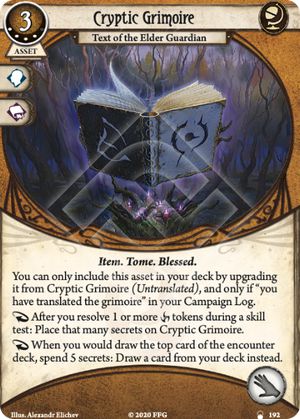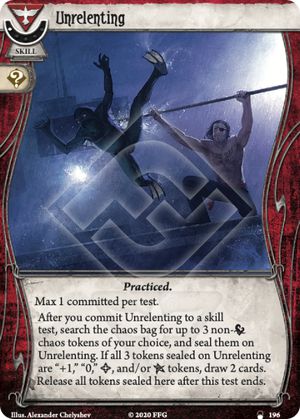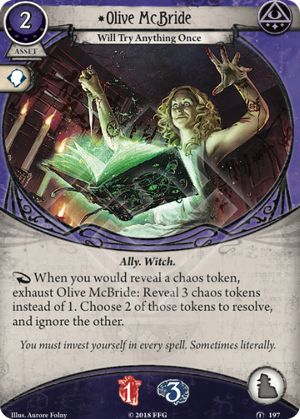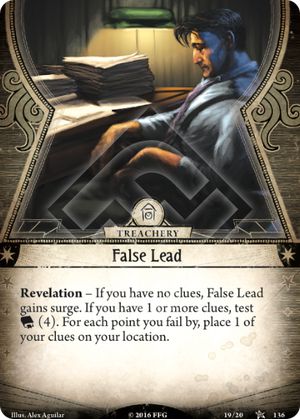
I'll leave my original review down below, but like pointed out by Thatwasademo, the recent FAQ actually proved wrong my understanding of Uses. (And that from the people, who told me, that I should not have action-free translated the Archaic Glyphs with Astounding Revelations, when I played Mandy.) I still think, that 5 secrets are a hard ask for an effect, that does not even trigger before knowing, which card you avoid, and is trounced by the effect from A Watchful Peace from class in the same cycle, at least in multiplayer. Text of the Elder Herald is likely the stronger card of the two, but I'm now actually interested in translating the damn thing. I will update the review, once I have actual played with these cards.
Original Review:
So now Seekers have their way to mitigate the encounter deck just like a Mystic, do they?
Let's compare that to the staple core set Mystic card for that cause, Ward of Protection. It costs 2 resources and an action more to play, and doesn't cost you a horror. And I think, it won't be likely usable more than once, even if you play the card early. There are no "Uses (X secrets)" on the card, so you can't fill it with Astounding Revelations, Eldritch Sophists and the like. You only get secrets on this card, if you (not any player) resolve -token(s) during a skill test. You can't cancel the token(s) drawn either, and likely fail the test or at least gain one clue less than otherwise. So to charge up this grimoire once, you likely loose 2 to 5 actions. (On top of what your fellow investigators might loose, when they draw a .) It won't help, if you draw a on some other occasion, like Daisy playing Voice of Ra. You are paying 3 resources, a card and an action upfront to possibly save yourself an encounter draw and replace your card with a delay. This seems really weak for an unconditioned level 0 card, let alone something that requires 4 XP and a "quest" fulfilled earlier in the campaign. We probably shouldn't tax the 2 to 5 lost actions, because there should be other incentives to put -tokens into the bag than this card. It's OK, that different classes don't excel at all tasks equally. That's part of there theme and diversifies game play. Mystic's Astral Travel ain't a Shortcut, and that's fine. At least, it does not cost 4 XP!
Compared to the other Cryptic Grimoire, the 5 -threshold also looks unfavourable. This one is more to compare with Chuck Fergus, who is more flexible, grants a bigger discount, gives some soak and will likely be activated much more often in any given game. But at least he costs 1 XP more. I think, you still must reliable put at least 6 secrets on that one to get some use of it, which is much easier to archive than 10! (With 4 you only trade 3 resources, an action and a card to 2 resources and 2 actions, so basically buying an action for a resource, a card and some upfront cost.) I'm not really impressed with either version. "Quest cards" should give you something amazing for the extra effort. In particular since this one isn't the easiest to fulfil. I'm not sure, if I would take this path, even in decks heavily investing in to get some extra mileage out of them.




